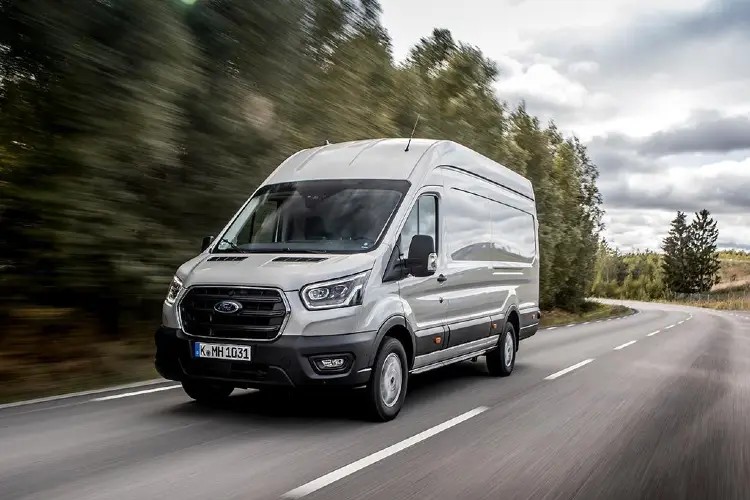The Ford Transit is a workhorse known for its reliability and versatility. But in today’s economy, fuel efficiency is just as important as cargo capacity. This article delves into the mileage of the Ford Transit, comparing it to competitors and exploring ways to maximize fuel economy.
Ford Transit MPG: Leading the Pack
The Ford Transit boasts an impressive fuel economy, especially when equipped with the 105PS Ecoboost Euro 6.2 diesel engine. This engine delivers a class-leading 43.5 mpg (miles per gallon) according to the WLTP (Worldwide Harmonised Light Vehicle Test Procedure), the official standard for measuring fuel consumption. While real-world mileage may vary due to factors like payload, driving conditions, and driving style, the Transit sets a high benchmark for fuel efficiency in the large van segment. Even with its relatively lower power output, the 310 Nm of torque ensures sufficient power for urban driving. Additionally, with CO2 emissions of 221 g/km, the Transit is a relatively cleaner option compared to other large vans.
Comparing Mileage: Ford Transit vs. Competitors
How does the Ford Transit’s mileage stack up against the competition? Here’s a quick comparison with other popular large vans in the UK market:
- Fiat Ducato: 34.4 mpg
- Mercedes-Benz Sprinter: 32.8 mpg
- Peugeot Boxer / Citroen Relay: 32.8 mpg
- Vauxhall Movano: 32.3 mpg
As these figures demonstrate, the Ford Transit significantly outperforms its rivals in terms of fuel economy. This translates into substantial savings on fuel costs over time, making the Transit a compelling choice for businesses and individuals seeking to minimize operating expenses.
Maximizing Your Ford Transit’s Mileage
While the Ford Transit is inherently fuel-efficient, you can take steps to further improve your mileage:
- Smooth Driving: Avoid harsh acceleration and braking.
- Anticipate Stops: Coast to a stop whenever possible.
- Maintain Speed: Consistent speeds are more fuel-efficient than fluctuating speeds.
- Optimize Tire Pressure: Properly inflated tires reduce rolling resistance.
- Reduce Payload: Carry only what you need to minimize weight.
Understanding Fuel Efficiency Metrics
MPG figures are derived from standardized tests (WLTP) conducted under controlled conditions. Real-world driving conditions will impact your actual mileage. Factors such as traffic, terrain, and weather can all affect fuel consumption. Using the official MPG as a benchmark allows for comparison between different van models.
Conclusion: Mileage Matters
In the competitive large van market, the Ford Transit’s exceptional mileage is a significant advantage. Combining its fuel efficiency with its renowned reliability and cargo capacity, the Transit remains a top contender for businesses and individuals seeking a cost-effective and versatile transportation solution. By adopting fuel-efficient driving practices, you can further maximize your mileage and reduce your operating costs.
